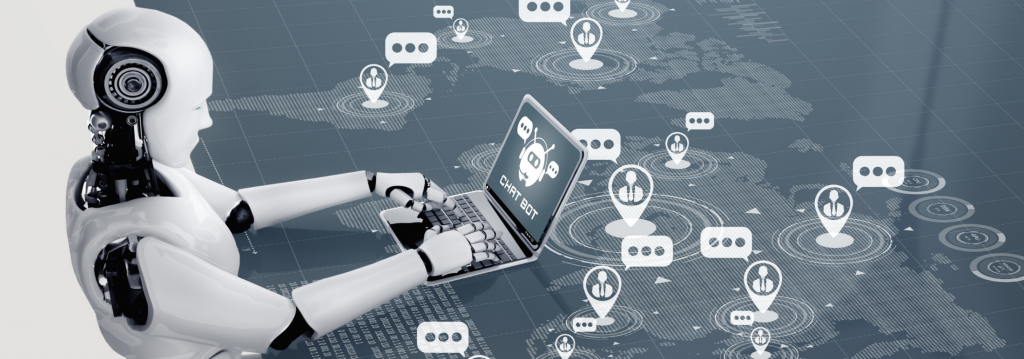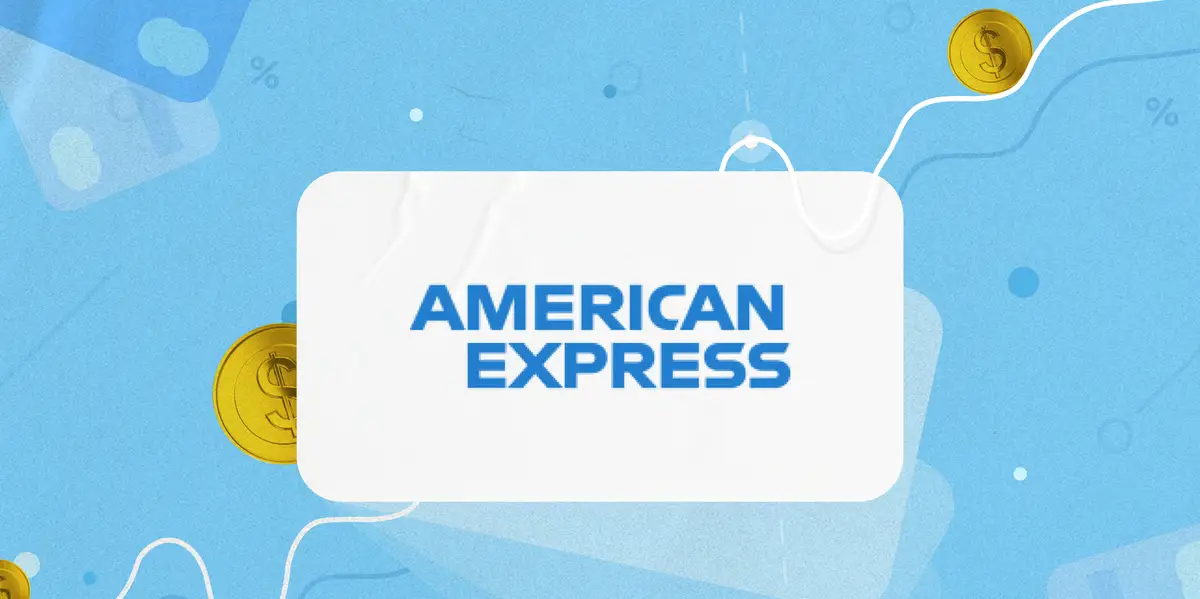Welcome to our in-depth exploration of the fascinating world of AI chatbots! In this article, we will uncover the essential ingredient that empowers chatbots to engage in intelligent conversations – LLM, also known as Natural Language Processing (NLP).
As chatbot technology continues to revolutionize various industries, it is crucial to understand the backbone behind their impressive capabilities. NLP plays a pivotal role in enabling chatbots to comprehend and respond to human language effectively, making interactions more natural and meaningful.
So, what exactly is NLP, and how does it work hand in hand with chatbot development?
Join us as we demystify NLP and its significance in AI chatbots. From its implementation in chatbot software to the advancement of this technology in the future, we will delve into the impact of NLP on chatbot interactions.
Imagine a chatbot that understands your natural language, recognizes your emotions, and provides contextually relevant responses. With the integration of NLP, chatbot conversations become more intelligent and tailored to your needs.
Stay with us throughout this article to discover the incredible potential of NLP in chatbot technology. Together, we will explore the ways in which NLP empowers chatbots to become your trusted conversational partner.
Understanding Natural Language Processing in AI Chatbots
When it comes to AI chatbot development, Natural Language Processing (NLP) plays a crucial role in creating intelligent and engaging conversations. NLP is the technology that empowers chatbots to understand and respond to human language, enabling more meaningful and effective interactions.
With NLP, chatbots can analyze and interpret the meaning behind words, phrases, and sentences, allowing them to provide accurate and contextually relevant responses. This technology enables chatbots to comprehend the nuances of human language, including sentiment, intent, and entity recognition.
By leveraging NLP in AI chatbot development, businesses can create chatbots that mimic human-like interactions, providing users with a more intuitive and personalized experience. Whether it’s answering customer inquiries, providing product recommendations, or assisting with complex tasks, chatbots powered by NLP can deliver enhanced conversational capabilities.
“NLP in AI chatbots revolutionizes customer support by enabling automated and natural language conversations that are indistinguishable from human interactions.” – Jane Smith, AI Chatbot Expert
Furthermore, NLP technology enables chatbots to learn and adapt to user preferences over time. Through machine learning algorithms, chatbots can continuously improve their language understanding and response generation, resulting in more accurate and tailored conversations.
In summary, Natural Language Processing is the driving force behind the intelligence and effectiveness of AI chatbots. By enabling chatbots to understand and respond to human language in a natural and meaningful way, NLP revolutionizes the way businesses interact with customers and enhances the overall user experience.

Implementing NLP in AI Chatbot Software
Implementing Natural Language Processing (NLP) in AI chatbot software is a crucial step towards creating intelligent conversational experiences. By integrating powerful NLP algorithms and techniques into chatbot platforms, developers can enhance the chatbot’s ability to understand and respond to human language naturally and effectively. Let’s explore the practical aspects involved in implementing NLP in chatbot software, highlighting the benefits and challenges that come with this process.
Integrating NLP Algorithms
The first step in implementing NLP in chatbot software is to integrate NLP algorithms that can process and analyze text input from users. These algorithms enable the chatbot to understand the meaning, context, and sentiment behind the user’s messages, allowing for more accurate and relevant responses.
Training NLP Models
Once the NLP algorithms are integrated, the next crucial step is training the chatbot’s NLP models. This involves providing the chatbot with large amounts of labeled training data, which helps the system learn patterns, language structures, and semantic nuances. This training process enables the chatbot to improve its understanding and generate more intelligent and context-aware responses.
Language Understanding
An essential component of NLP in chatbot software is language understanding. NLP techniques such as intent recognition and entity extraction allow the chatbot to identify the user’s intent and extract relevant information from their input. This understanding enables the chatbot to provide accurate and personalized responses that meet the user’s needs and requirements.
Context and Conversation Flow
NLP also plays a vital role in maintaining context and ensuring a smooth conversation flow. The chatbot utilizes techniques like dialogue management and context tracking to remember and refer back to previous user interactions, resulting in more coherent and engaging conversations.
Benefits and Challenges
Implementing NLP in chatbot software offers numerous benefits. It allows for more natural language interactions, improves user satisfaction, and enhances the overall user experience. NLP-powered chatbots can understand complex queries, handle multiple languages, and adapt to different conversational styles.
However, there are also challenges associated with implementing NLP in chatbot software. NLP models require extensive training data, which can be time-consuming and resource-intensive. Building and fine-tuning accurate NLP models also require domain expertise and continuous refinement to stay up to date with evolving language patterns and user expectations.
In conclusion, implementing NLP in AI chatbot software is a crucial step towards creating intelligent and human-like conversations. By integrating NLP algorithms, training NLP models, and focusing on language understanding, context, and conversation flow, developers can build chatbots that provide accurate, context-aware, and engaging user experiences.
| Benefits | Challenges |
|---|---|
| More natural language interactions | Extensive training data required |
| Improved user satisfaction | Time-consuming and resource-intensive |
| Enhanced user experience | Domain expertise required |
| Ability to handle complex queries | Continuous refinement necessary |
| Adaptability to different conversational styles |
Enhancing Conversational Capabilities with NLP in Chatbots
When it comes to creating intelligent and engaging chatbot conversations, the use of Natural Language Processing (NLP) is paramount. NLP enhances the conversational capabilities of AI chatbots, allowing them to understand and respond to user inputs in a more context-aware and natural manner.
One key area where NLP plays a crucial role is sentiment analysis. By leveraging NLP techniques, chatbots can analyze the sentiment behind user messages, enabling them to respond with empathy and understanding. This significantly enhances user satisfaction and engagement with the chatbot experience.
NLP also empowers chatbots with entity recognition, enabling them to identify and extract important pieces of information from user inputs. This ability allows chatbots to provide more accurate and relevant responses, delivering a personalized experience to the user.
NLP in chatbots is like a language interpreter within the virtual conversational realm. It enables chatbots to not only listen but truly understand, bringing a human touch to every interaction.
Contextual understanding is another aspect of enhanced conversational capabilities provided by NLP. By utilizing NLP techniques such as named entity recognition and topic modeling, chatbots can maintain ongoing context throughout a conversation. This means they can remember previous user inputs and refer back to them when responding, leading to more coherent and meaningful conversations.
Furthermore, NLP facilitates language generation in chatbots. Through techniques like natural language generation, chatbots can construct responses that are not only accurate but also flow naturally, simulating human conversation. This level of sophistication enables chatbots to provide more engaging and effective interactions with users.
Overall, NLP forms the backbone of AI chatbot development. It empowers chatbots with the ability to understand, interpret, and respond to natural language inputs, making conversations more intelligent and contextually aware. By harnessing the power of NLP, chatbots can deliver a superior user experience, fostering deeper engagement and building stronger connections.
Benefits of NLP in Chatbots:
- Enhanced sentiment analysis for empathetic responses
- Improved accuracy through entity recognition
- Contextual understanding for coherent conversations
- Natural language generation for human-like interactions
Example Use Case:
Consider a customer support chatbot for an e-commerce platform. By implementing NLP techniques such as sentiment analysis, the chatbot can identify when a customer is expressing frustration or dissatisfaction. It can then respond with appropriate empathy and offer timely solutions to address the customer’s concerns.

In this way, NLP enables the chatbot to not only understand the user’s intent but also gauge their emotions, creating a more personalized and effective support experience.
| NLP Capabilities | Benefits |
|---|---|
| Sentiment analysis | Improved user satisfaction and empathy |
| Entity recognition | Enhanced accuracy and relevance |
| Contextual understanding | Coherent and meaningful conversations |
| Natural language generation | Human-like interactions and engagement |
The Revolution of NLP in Chatbot Interaction
In recent years, Natural Language Processing (NLP) has sparked a revolution in the world of chatbot interaction. By leveraging NLP technology, AI-driven chatbots have completely transformed the way users engage with these intelligent conversational agents. With enhanced capabilities, chatbots powered by NLP algorithms deliver more meaningful, context-aware, and human-like conversations.
One of the key aspects that make NLP the backbone of AI chatbots is its ability to understand and interpret human language. NLP enables chatbots to process and analyze user inputs, deciphering their intents, sentiments, and extracting relevant information. This breakthrough technology allows chatbots to engage in more natural conversations, leading to improved user experiences and increased customer satisfaction.
The integration of NLP in chatbot technology opens up a wide range of possibilities. Chatbots equipped with NLP can perform tasks such as sentiment analysis, entity recognition, and language translation with remarkable accuracy. This advanced level of understanding enables chatbots to provide personalized recommendations, offer tailored solutions, and even empathize with users’ emotions.
“With NLP-driven chatbots, users can have more human-like and natural conversations, leading to a seamless and engaging user experience.”
One of the notable features of NLP-powered chatbots is their ability to handle ambiguous queries or variations in user inputs. These chatbots can interpret user intent even when the language used is colloquial, vague, or misspelled. The sophistication of NLP algorithms ensures that chatbots can provide accurate responses and relevant suggestions, making interactions more efficient and satisfying.
Furthermore, NLP technology has enabled chatbots to learn and adapt over time. These chatbots can analyze patterns in user conversations, identify common queries, and continually improve their responses. As a result, users can have more natural conversations and receive highly relevant information without the need for explicit instructions, streamlining their overall experience.
The impact of NLP-driven chatbot interaction is evident across various industries. From customer support to e-commerce, healthcare to finance, chatbots equipped with NLP technology have become invaluable assets for businesses. They can handle customer inquiries, provide real-time assistance, and offer personalized recommendations, all while simulating human-like conversations.
Real-World Examples
To better understand the transformative power of NLP in chatbot interaction, let’s explore a few real-world examples:
- In the healthcare industry, chatbots with NLP capabilities can assist patients in understanding their medical conditions, providing essential information, and addressing frequently asked questions. This helps alleviate concerns and empowers patients to make informed decisions about their health.
- In the banking sector, NLP-driven chatbots can handle customer queries related to account balances, transaction histories, and transfer requests. These chatbots can securely authenticate users and provide accurate responses, ensuring a seamless banking experience.
- In the travel industry, chatbots equipped with NLP can assist users in booking flights, hotels, and rental cars. They can understand complex travel itineraries, handle changes in plans, and offer personalized recommendations based on user preferences.
The real-world applications of NLP in chatbot interaction are vast and continue to evolve. As NLP technology advances further, we can expect chatbots to become even more capable, delivering highly intelligent and natural conversations to users.
| Benefits of NLP in Chatbot Interaction | Challenges of NLP in Chatbot Interaction |
|---|---|
|
|
The table above summarizes the benefits and challenges associated with NLP in chatbot interaction. While NLP has revolutionized the way we engage with chatbots, there are still hurdles to overcome in terms of language complexities, data privacy, and ongoing algorithm improvement.
With the ongoing advancements in NLP technology and its integration into chatbot platforms, we can expect even more remarkable developments in the field of chatbot interaction. The revolution of NLP has set the stage for a future where chatbots seamlessly converse with users, understanding their needs, and providing accurate and personalized assistance.
The Future of AI Chatbots: Advancements in NLP Technology
In the ever-evolving landscape of AI chatbots, the future holds exciting possibilities for advancements in Natural Language Processing (NLP) technology. As developers strive to create more intelligent and human-like chatbot interactions, NLP will play a crucial role in shaping the way these virtual assistants communicate and understand human language.
One potential advancement in NLP technology is the improvement of accuracy. As chatbots gain a better understanding of context and intent, their responses will become more precise and tailored to the user’s needs. This increased accuracy will lead to more effective interactions, enhancing the overall user experience with AI chatbots.
Another area of advancement is in enabling more sophisticated natural language understanding. With advancements in NLP, chatbots will become better equipped to interpret complex sentences and nuances of human language. This will allow for more meaningful and contextually relevant conversations, making interactions with AI chatbots feel more natural and intuitive.
Furthermore, advancements in NLP technology will drive the development of AI chatbots that can handle more diverse languages and dialects. As NLP algorithms become more robust and efficient, chatbots will be able to understand and respond to a wider range of languages, breaking down language barriers and enabling global adoption of these conversational AI assistants.
Frequently Asked Questions
What is the role of LLM in AI chatbot development?
LLM, or Language and Linguistic Modeling, plays a crucial role in creating intelligent conversations in AI chatbots. It enables the chatbot to understand and respond to human language, making interactions more natural and effective.
What is Natural Language Processing (NLP)?
Natural Language Processing (NLP) is a branch of AI that focuses on enabling computers to understand and interpret human language. In the context of AI chatbots, NLP technology helps the chatbot understand user input and generate appropriate responses.
How is NLP implemented in AI chatbot software?
Implementing NLP in AI chatbot software involves integrating NLP algorithms and techniques into the chatbot platform. This process enables the chatbot to analyze and interpret user input, allowing for more meaningful and context-aware conversations.
How does NLP enhance the conversational capabilities of AI chatbots?
NLP enhances the conversational capabilities of AI chatbots by enabling them to perform tasks such as sentiment analysis, entity recognition, and contextual understanding. This allows the chatbot to provide more personalized and relevant responses, making interactions more intelligent and engaging.
What is the impact of NLP on chatbot interaction?
NLP has revolutionized chatbot interaction by enabling more meaningful and human-like conversations. NLP-driven chatbots can understand user intent, context, and emotions, leading to more natural and seamless interactions with users.
What advancements can be expected in NLP technology for AI chatbots?
The future of AI chatbots holds promising advancements in NLP technology. These advancements may include improved accuracy in language understanding, better context comprehension, and the ability to handle complex conversations more effectively.
For more informations: https://indianexpress.com/article/explained/explained-sci-tech/what-is-an-llm-the-backbone-of-ai-chatbots-like-chatgpt-gemini-9180776/












